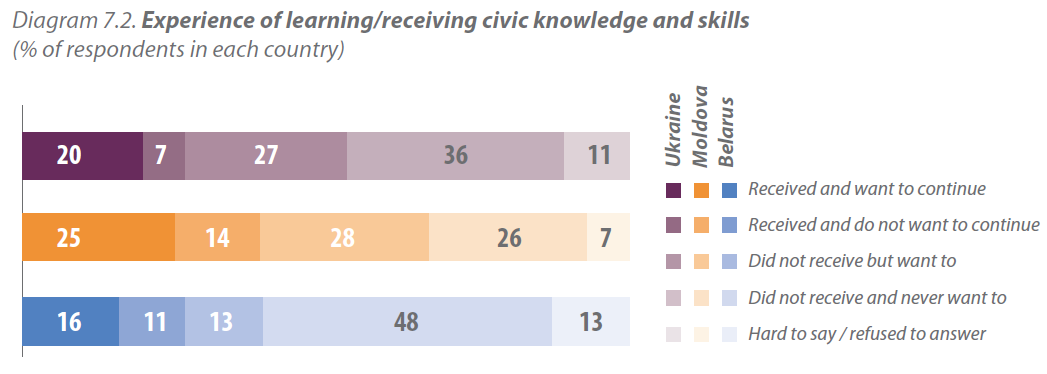Minsk alludes to ‘shared values’ with Europe as Brussels downplays repression – Belarus Foreign Policy Digest

Michael Roth at the opening of an exhibition in Minsk on the Trascianiec death camp. Photo: BelTA
Security services have so far detained over 150 protesters following mass rallies in Belarus. Many were arrested or fined, and some were beaten.
However, the authorities' return to mass repression of the opposition has provoked a muted reaction from Western democracies. The government’s actions have so far failed to disrupt the intensive dialogue between Minsk and European capitals.
High-level diplomats from Germany and Belgium visited Minsk when the repression was already in full swing. Belgium’s deputy prime minister de facto condoned the administrative arrests, while the German diplomat warned Belarus against ‘backsliding in terms of democracy’.
Meanwhile, Belarus continues to pursue closer relations with Western-oriented post-Soviet states – disregarding Moscow’s evident displeasure at Minsk's geopolitical choices. The Georgian President visited Minsk seeking to secure Belarus’s continued support for Georgia’s territorial integrity.
Russia is not a major factor in Belarus-Georgia relations
On 1-2 March, Georgia’s President Giorgi Margvelashvili paid an official visit to Belarus. His trip to Minsk bolsters the dynamic bilateral relations set in motion by Belarusian President Alexander Lukashenka’s visit to Tbilisi in April 2015.
The Georgian leader thanked his host profusely for Belarus’s unwavering support for Georgia’s territorial integrity and sovereignty: despite its alliance with Russia, Belarus has refused to recognise the independence of two Georgian breakaway territories cum Russian satellites.
After Tbilisi severed its diplomatic and economic ties with Moscow, Belarus became an important hub for legal and illegal transit of Georgian people and goods to Russia. In return, current and former Georgian leaders have frequently supported Lukashenka when meeting with influential Western politicians.
The Belarusian state-sponsored media generally turn a blind eye to Margvelashvili’s harsh statements regarding Russia. Instead, they tend to emphasise the brisk pace of Belarus-Georgia economic ties.
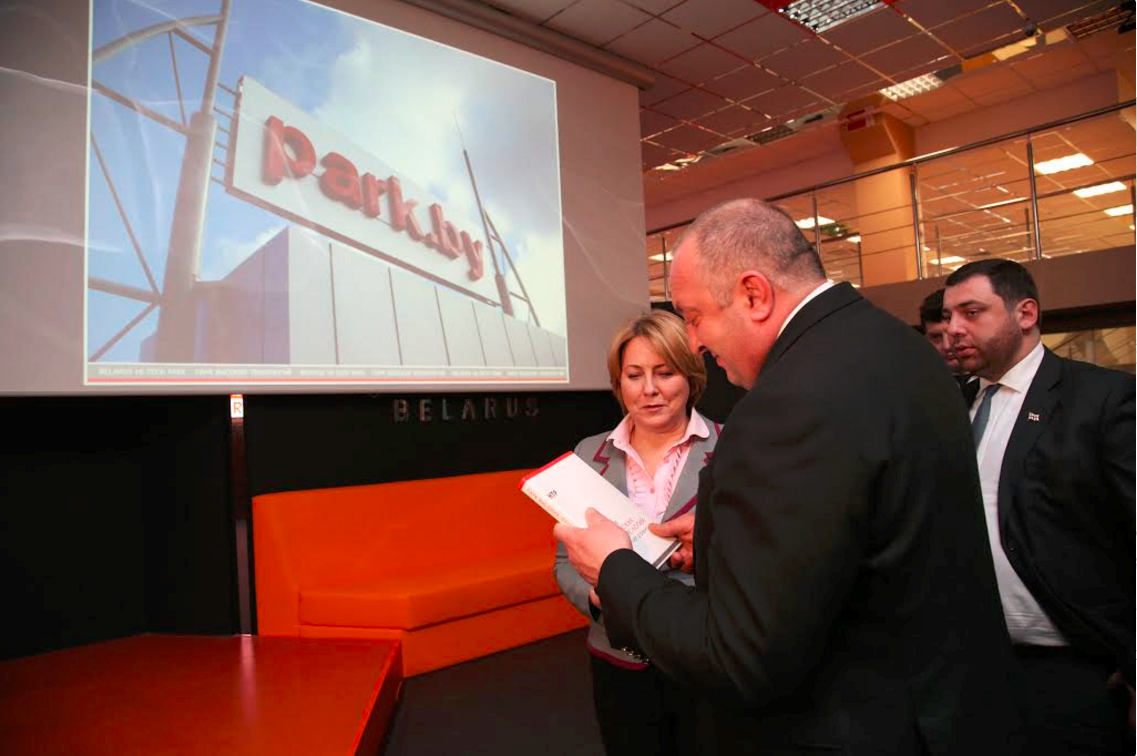 Indeed, last year bilateral trade grew by 63.4%, reaching $73.2m. However, these figures seem less spectacular in a broader context. The goal of $200m set by Lukashenka and Margvelashvili in 2015 may prove unattainable.
Indeed, last year bilateral trade grew by 63.4%, reaching $73.2m. However, these figures seem less spectacular in a broader context. The goal of $200m set by Lukashenka and Margvelashvili in 2015 may prove unattainable.
Belarus is seeking to participate in the construction of major winter sports facilities in Georgia and supply non-military goods to the Georgian army. Georgia is interested in Belarus’s know-how in the agricultural and IT spheres. In return, Margvelashvili has stated his readiness to share Georgia’s experience in implementing economic reforms – an offer the Belarusian authorities are less than eager to take him up on.
Both Belarus and Georgia are comfortable with each other's geopolitical orientation. Margvelashvili described the aspirations of the two countries with regards to different blocs as ‘an advantage which should further strengthen [our] relations’.
On the same day, Belarus’s foreign minister Vladimir Makei proposed ‘not to invent some imaginary dangers for [Belarus’s] economy or the economies of other EEU member states, but rather to take a realistic view of the situation’. This attitude stands in stark contrast to Russia’s nervous position on the issue.
Germany, Belarus’s key partner in Europe
In recent weeks, Belarus and Germany have maintained remarkably active diplomatic contacts. This exchange culminated in a visit to Minsk from Michael Roth, Minister of State for Europe at the German Federal Foreign Office on 13-14 March.
Earlier, on 22-24 February, Belarus’s deputy foreign minister Oleg Kravchenko travelled to Berlin to hold political consultations with his German counterpart, to speak at a business conference, and to meet several German officials. In late February – early March, Kravchenko’s boss Vladimir Makei received Johann David Wadeful, deputy chairman of the German-Belarusian parliamentary group in the Bundestag, and Bärbel Kofler, commissioner of the Federal Government for human rights policy and humanitarian aid.
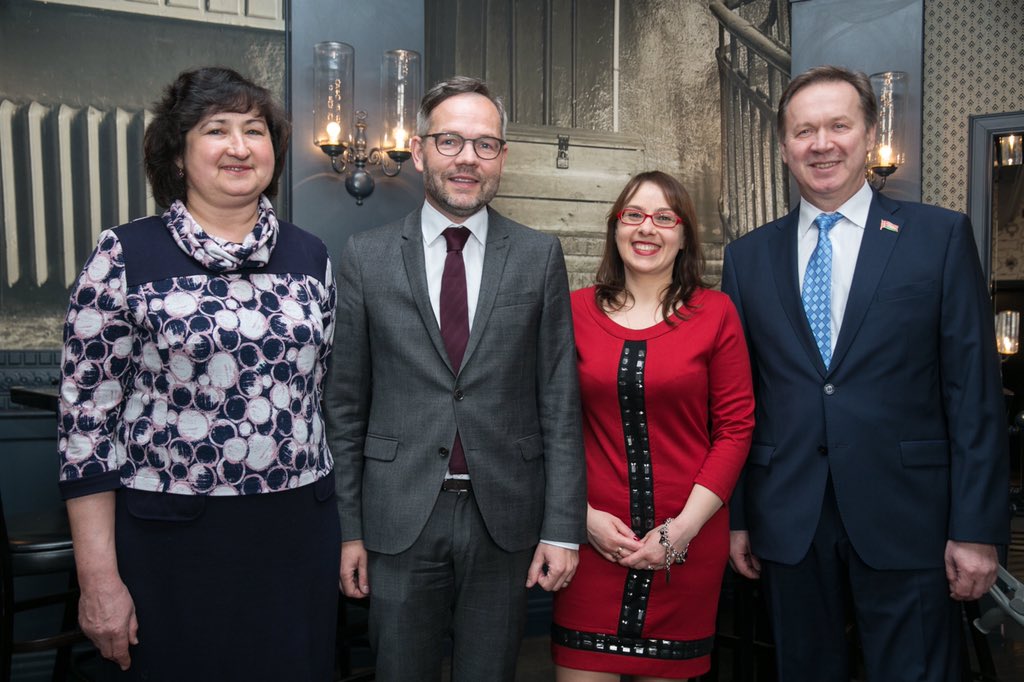 Michael Roth became the highest-ranked German diplomat and politician to come to Minsk on a bilateral visit after former foreign minister Guido Westerwelle’s trip in November 2010. Roth came to Minsk to celebrate the 25th anniversary of the two countries’ diplomatic relations accompanied by Oliver Kaczmarek, chairman of the German-Belarusian parliamentary group in the Bundestag
Michael Roth became the highest-ranked German diplomat and politician to come to Minsk on a bilateral visit after former foreign minister Guido Westerwelle’s trip in November 2010. Roth came to Minsk to celebrate the 25th anniversary of the two countries’ diplomatic relations accompanied by Oliver Kaczmarek, chairman of the German-Belarusian parliamentary group in the Bundestag
After his meeting with Roth, Vladimir Makei called Germany Belarus’s key partner in Europe and spoke about positive momentum in their bilateral relations. Roth assured the Belarusian authorities of Germany’s support to Belarus’s accession to the WTO. Other than this, the parties were reticent about their negotiations or future plans.
At a conference dedicated to the jubilee of diplomatic relations, with Roth in attendance, deputy minister Kravchenko made a surprising statement: ‘[Belarus’s] relations with Europe must be built on shared values, not only on economic pragmatism’. This notion of ‘shared values’ is a novelty in official Belarusian discourse.
The return of the Belarusian government to large-scale repression against oppositional leaders and protesters casts doubt on the sincerity of such declarations. Michael Roth stressed Germany’s preoccupation with the ongoing events and called for the ‘immediate release of all detained’. ‘We do not want to return to the days of sanctions, but both the EU and Germany have an absolutely clear expectation that … Belarus should not be backsliding in terms of democracy and human rights’, the German diplomat said.
Belgium downplays the importance of administrative arrests in Belarus
The mass arrests in Belarus failed to dissuade Belgium’s deputy prime minister and foreign minister from visiting Minsk. On 15 March, Didier Reynders met with his counterpart Vladimir Makei and was received by Alexander Lukashenka.
The Belarusian leader used the opportunity presented by the Belgian minister's visit to send a couple of new messages to Vladimir Putin. First, he failed to name Russia among the global centres of power (his list included China, the United States, and the EU). What's more, Lukashenka called himself a ‘supporter of the EU’ and its unity and emphasised Belarus’s critical attitude towards ‘[Europe’s] Brexits and nationalistic movements’, which Russia happens to support, openly or covertly.
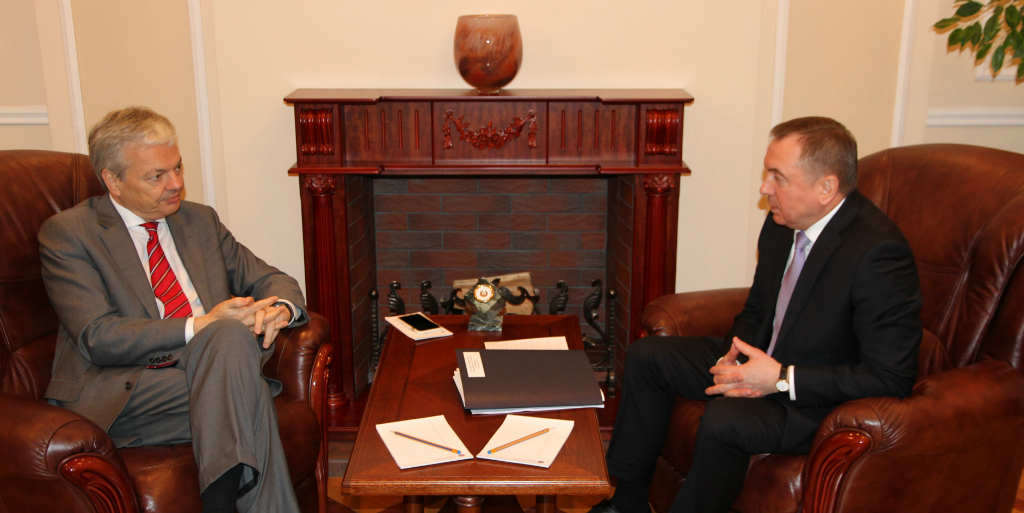 Reynders rejoiced at the Belarusian authorities’ apparent willingness ‘to move forward on the path of closer work with civil society’. When asked about the potentially disruptive effect of the mass arrests in Belarus on the country’s relations with the EU, the foreign minister insisted on making ‘a very clear difference between administrative arrests during demonstrations like we have seen in many European countries, and real prosecution for criminal facts.’
Reynders rejoiced at the Belarusian authorities’ apparent willingness ‘to move forward on the path of closer work with civil society’. When asked about the potentially disruptive effect of the mass arrests in Belarus on the country’s relations with the EU, the foreign minister insisted on making ‘a very clear difference between administrative arrests during demonstrations like we have seen in many European countries, and real prosecution for criminal facts.’
On the same night, the Belarusian authorities demonstrated their understanding of the implications of Reynders’ message when they detained dozens of protesters (some of them with brutal force) after a peaceful and authorised rally in Minsk.
The West’s failure to audibly condemn the Belarusian authorities for their return to repressive practises has shown that the EU and the United States continue to prioritise Minsk’s timid westward reorientation over its attitude towards human rights and rule of law.




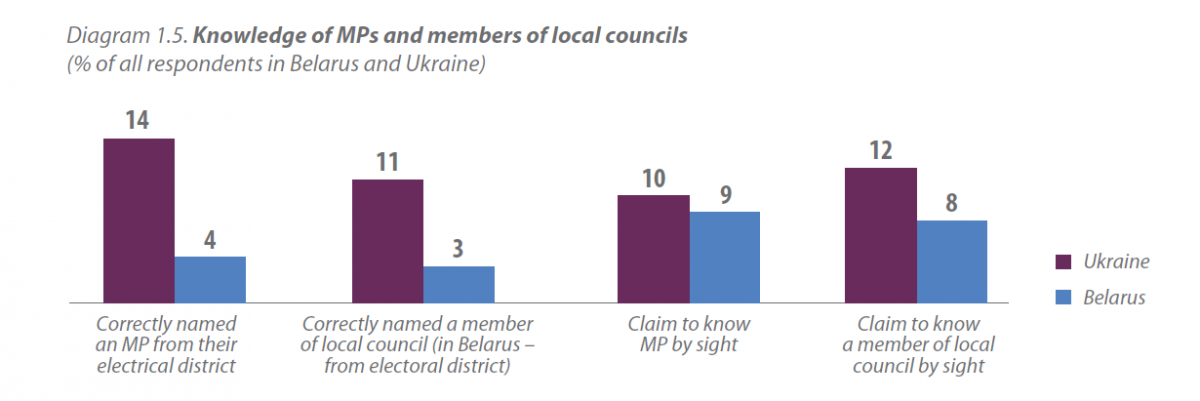
 In Moldova, the general rate of civic activism, readiness to take part in civic initiatives, and confidence in one’s own ability to influence life in the community/country is relatively higher than in Ukraine or Belarus. Of all the countries, Belarusians show the least amount of readiness to participate in public life.
In Moldova, the general rate of civic activism, readiness to take part in civic initiatives, and confidence in one’s own ability to influence life in the community/country is relatively higher than in Ukraine or Belarus. Of all the countries, Belarusians show the least amount of readiness to participate in public life.

